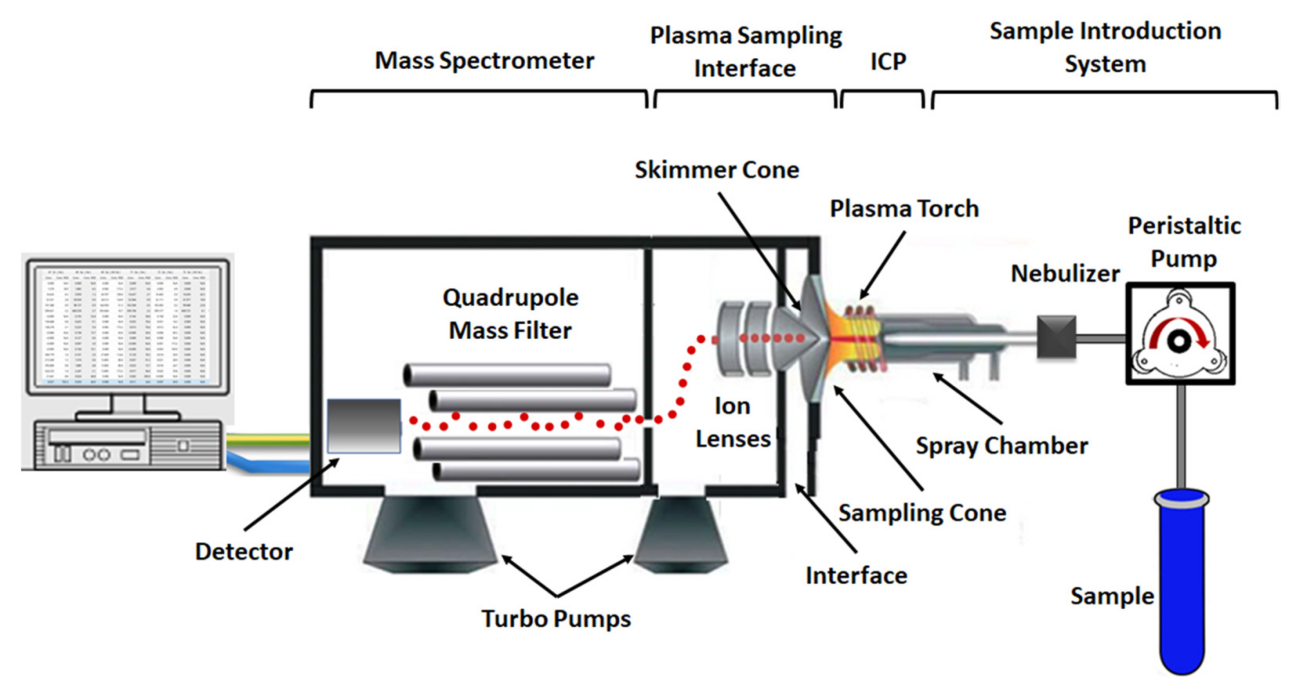Recombinant Collagen Heavy Metals & Trace Elements Analysis Service
Recombinant collagen is widely applied in tissue engineering, wound healing, medical biomaterials, and drug delivery. Ensuring its safety and quality stability is critical for product performance and clinical use. During production and purification, trace amounts of heavy metals or elements may be introduced from raw materials, equipment, or processing steps. These metallic elements can exist in free, complexed, or bound states. Some may exhibit toxic effects at specific concentrations, making rigorous monitoring and control essential.
Heavy metals are non-functional in therapeutic products and are regulated under strict limits in many countries. To meet both quality control and regulatory expectations, MtoZ Biolabs offers Recombinant Collagen Heavy Metals & Trace Elements Analysis Service that is designed to comprehensively identify and quantify metal contaminants in recombinant collagen products.
Technical Principles
Recombinant Collagen Heavy Metals & Trace Elements Analysis Service employs Inductively Coupled Plasma Mass Spectrometry (ICP-MS) to quantitatively analyze heavy metals and trace elements. Using a high-temperature plasma source, ICP efficiently ionizes metal elements in the sample. These ions are then transferred to the mass spectrometer for detection. The combination of high ionization efficiency and rapid, sensitive mass detection enables the accurate quantification of trace and ultra-trace metal species, making ICP-MS ideal for the analysis of low-abundance metallic impurities.

Mazarakioti, E. C. et al. Foods. 2022.
Figure 1. Schematic Diagram of ICP-MS
Analysis Workflow
MtoZ Biolabs follows a standardized workflow to ensure traceable and reproducible data throughout the Recombinant Collagen Heavy Metals & Trace Elements Analysis Service:
1. Sample Pretreatment
Samples are digested via microwave-assisted or acid-based methods to fully release metal species.
2. ICP-MS Detection
Internal standards and optimized scan parameters are applied for simultaneous multi-element quantification.
3. Quality Control Measures
Each run includes calibration curves, blank samples, and replicates to assess accuracy and background levels.
4. Data Analysis & Reporting
Structured reports include result tables, detection conditions, and quality metrics for easy interpretation and regulatory use.
Service Advantages
✅ High Sensitivity Platform: ICP-MS enables trace to ultra-trace level detection of metal elements.
✅ Comprehensive Element Coverage: Capable of detecting Pb, Cd, As, Hg, Ni, Cr, Fe, Cu, Zn, Mn, and other relevant contaminants.
✅ Proven Experience: Extensive history in testing multiple batches of recombinant collagen ensures consistent and reproducible results.
✅ Standardized Quality Control: All procedures adhere to globally accepted QC protocols to ensure data reliability.
✅ Efficient Turnaround: Standard delivery time is 2–3 weeks, supporting both research and regulatory timelines.
✅ One-Time-Charge: Our pricing is transparent, no hidden fees or additional costs.
Sample Submission Suggestions
Sample Type: We accept recombinant collagen in both lyophilized powder and liquid forms.
Recommended Quantity: Please provide at least 5 mg of lyophilized powder, or ≥1 mL of solution at a concentration of ≥1 mg/mL.
Storage and Transport: Liquid samples should be stored in polypropylene tubes and shipped frozen at temperatures below -20°C to ensure stability.
Note: MtoZ Biolabs supports a wide range of sample formats and offers comprehensive submission guidelines and technical consultation to ensure proper sample handling.
Applications
Recombinant Collagen Heavy Metals & Trace Elements Analysis Service is applicable to various research and development scenarios, including:
· Drug Quality Control: Analyze impurity profiles and assess overall quality during drug development.
· Process Optimization: Trace metal sources in production workflows to improve purification strategies.
· Formulation Stability Studies: Evaluate the impact of metals on protein structure and formulation integrity.
· Regulatory Filing: Provide qualified reports supporting regulatory submissions and quality dossiers.
FAQ
Q1: How do you minimize the risk of contamination during testing?
We operate in a dedicated metal-free workspace using ultrapure reagents and certified containers to avoid contamination.
Q2: Can I customize the panel according to specific regulatory guidelines?
Yes. While our service is not directly tied to any specific regulatory framework, we can customize metal targets and limits based on your requirements.
Q3: Can low-abundance elements be re-tested or enriched?
Absolutely. We offer enrichment protocols and repeat testing for samples with extremely low metal concentrations to improve sensitivity and data reliability.
If you're seeking to evaluate or control metal impurities during recombinant collagen development or regulatory submission, Recombinant Collagen Heavy Metals & Trace Elements Analysis Service by MtoZ Biolabs provides validated methodologies and expert support to ensure accurate, compliant results.
Related Services
Recombinant Collagen Impurities Profile service
How to order?







